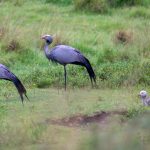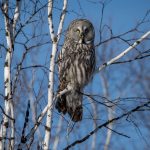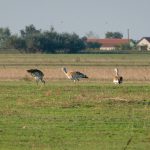Birds seem to be popping up everywhere in trivia these days. Just yesterday, I was listening to a quiz show on NPR when the host asked a really thought-provoking question: does it take birds longer to fly south for winter or return north in spring?
Consider the answer and, if you’d like, share your guess in the comments. If anyone is interested, I’ll share the fascinating answer.
My buddy Seth tipped me off to A.Word.A.Day at Wordsmith.org. Last week, they ran vocabulary related to birds. The following words all have associations with avians, although some connections are more tenuous than others. Try your luck with this lexicon:
columbarium
pied
roustabout
crestfallen
canard
Got any other interesting recent bird trivia?











Individuals or species? Methinks that spring migration has a certain underlying drive to it, while fall migration is more protracted, but it varies per group.
I would think the faster migration would be Spring. There would be an urgency to get breeding underway, the onset of spring in general is more rapid than the deteriorating weather of Fall Winter. There is also the advantage of a short lived bounty of food in the higher latitudes, insect populations surge quickly in the north and disappear almost as quickly, not so much in the south.
Spring migration has been suggested to be faster for the reasons mentioned. But see the new Stutchbury et al. (2009) in Science hard some hard evidence and more fun details.
Everything I have read over the years suggests that birds use a faster pace in the spring, since many have to be on the breeding grounds in time to claim the best territories and take advantage of seasonal abundance of foods. (I suppose this would be especially true of specialists.) In fall they can afford to linger a bit longer, especially for the hardier birds. But of course this would probably vary a lot by family and species, and it would also depend on what routes they take in fall in spring.
Of course you guys nailed it. The urgency of breeding season spurs birds on to impressive speeds. A recent study in bird migration tracked one purple martin taking 43 days to reach Brazil but only 13 days to make the reverse commute the following spring!